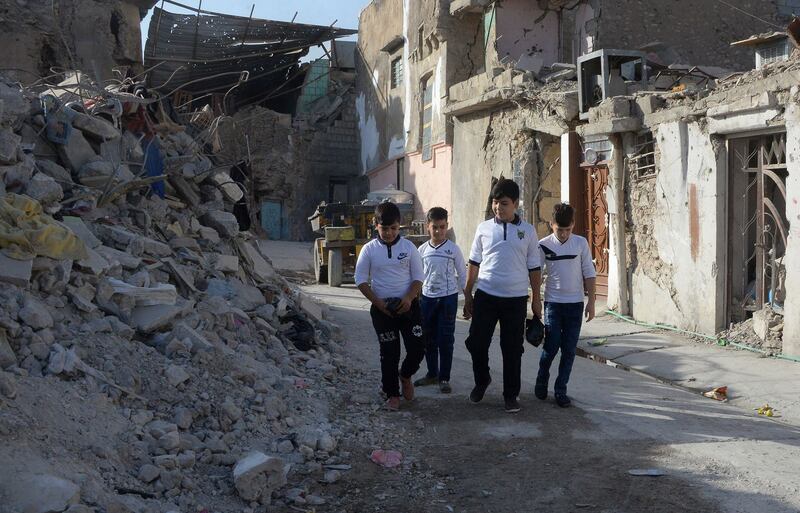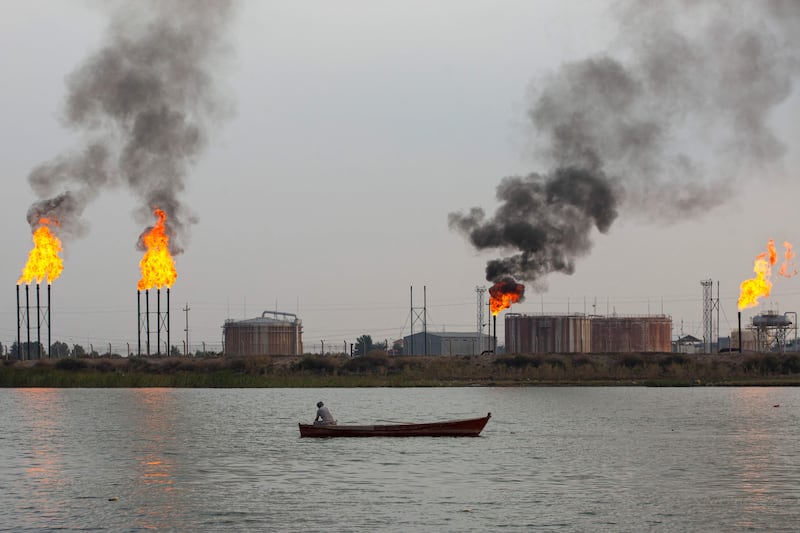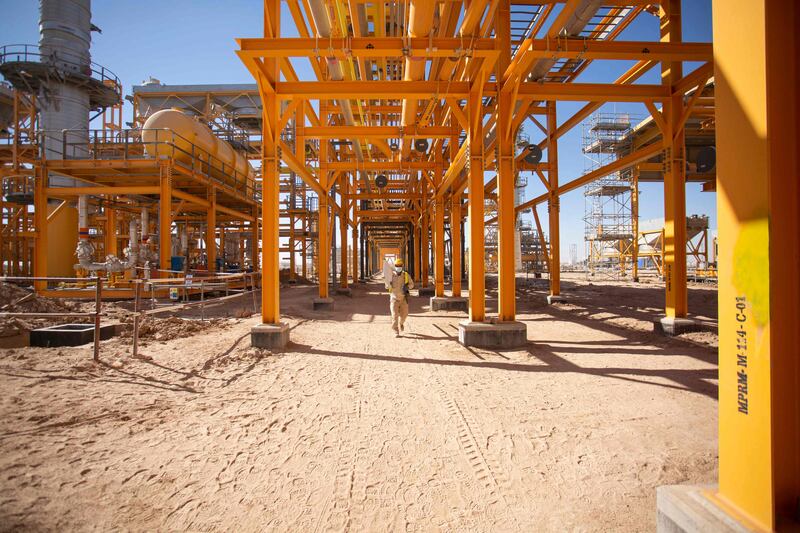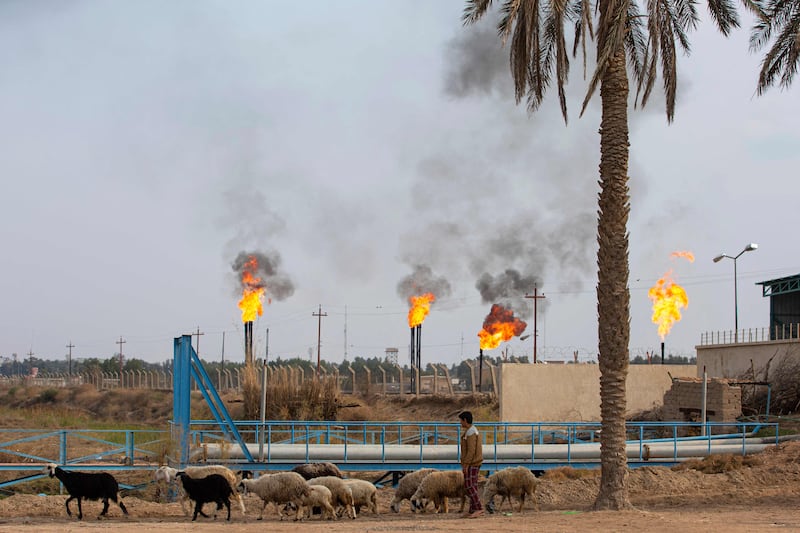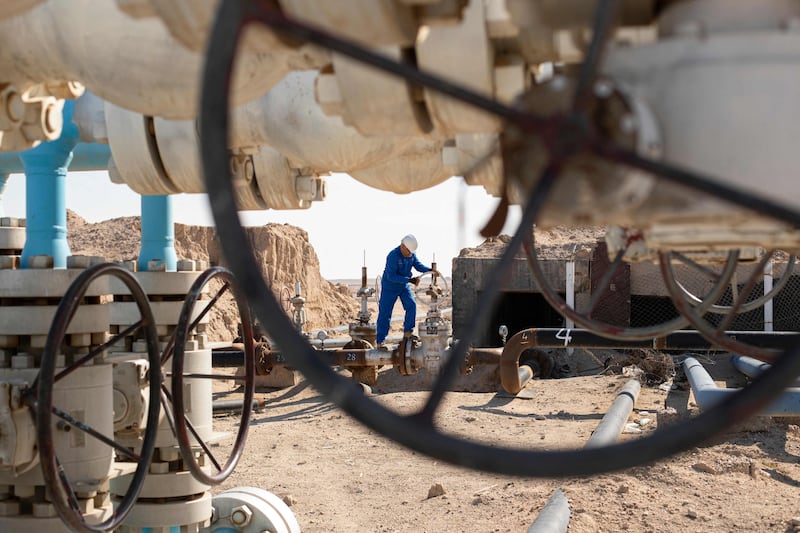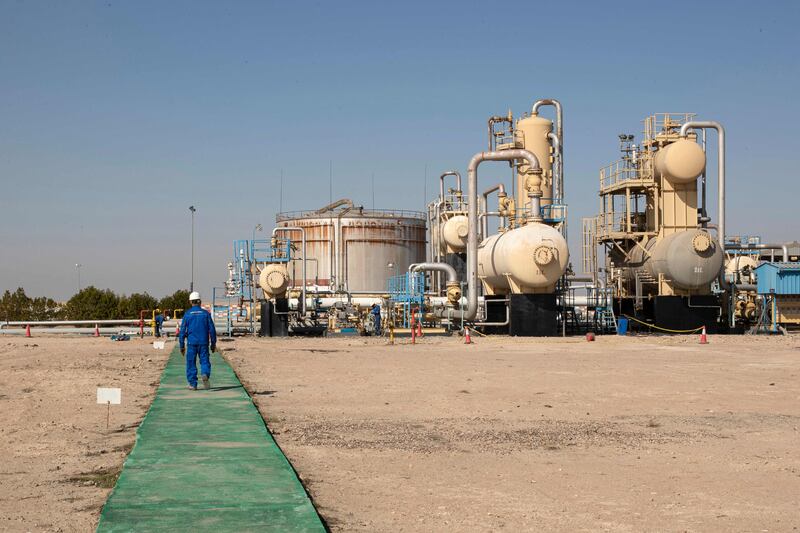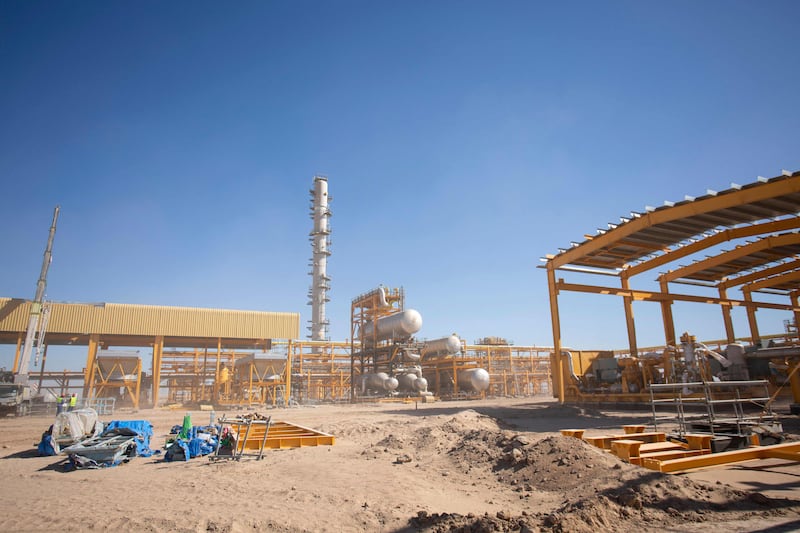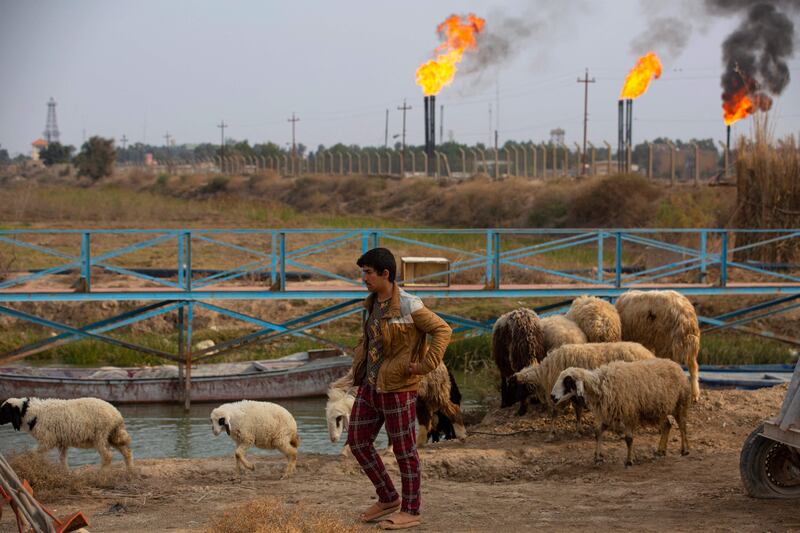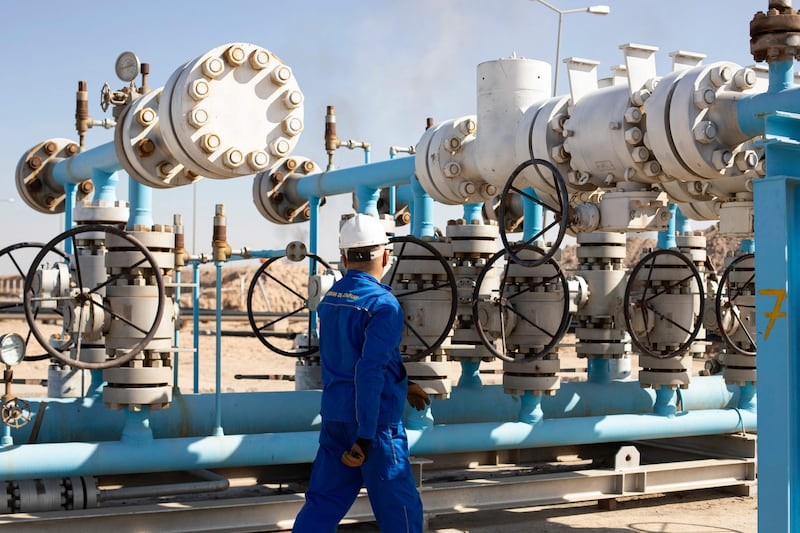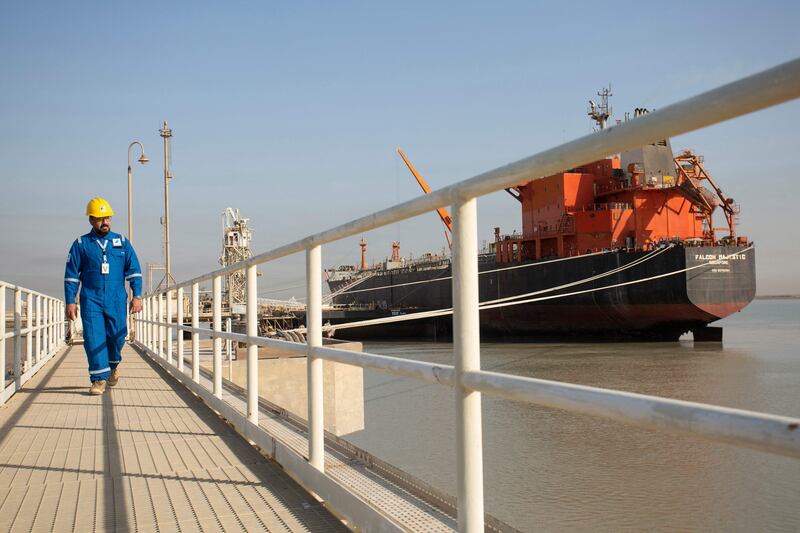The Iraqi government's ability to manage urgent needs, including vital services such as electricity, water and school construction, will be paralysed by a Supreme Court ruling that prohibits the caretaker government from spending money, officials said on Monday.
The decision issued by the Federal Supreme Court on Sunday stated that Prime Minister Mustafa Al Kadhimi’s caretaker government has no authority to present bills to Parliament or sign any commercial agreements.
Iraqi Finance Minister Ali Allawi said he respects the decision, but warned of tough days ahead.
“It will have consequences on the work of the Finance Ministry,” Mr Allawi said, as it will “limit our abilities” to mitigate the impact of rising commodity prices, meet electricity sector needs before summer, cover oil production expenses and boost agriculture.
Critics of Mr Al Kadhimi say that is exactly the point and that, as a caretaker body, his government should have limited power.
With this year’s budget shelved amid political deadlock over forming a new government, monthly spending is limited to one twelfth of the 2021 budget.
Last year's budget was 130 trillion Iraqi dinars ($89.65 billion), with an estimated deficit of 28.7tn dinars.
Dust storm hits northern and central Iraq
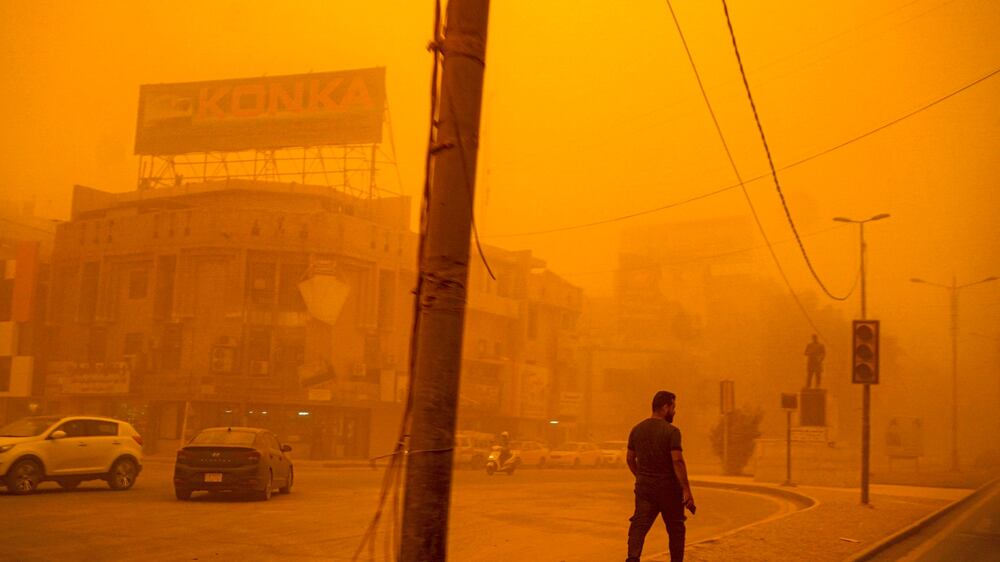
To meet mounting needs, the government sent a draft to Parliament of the Emergency Law for Food Security and Development.
The latest version of the bill calls for 27tn Iraqi dinars (about $18.5bn), said Mustafa Sanad, who sits in Parliament’s Financial Committee.
The lion’s share, 8tn Iraqi dinars (about $5.5bn), has been allocated to the Ministry of Trade to buy wheat from local farmers and international suppliers and to keep the government-run food ration programme going, Mr Sanad said.
It also sets aside 10tn Iraqi dinars (about $6.85bn) for development projects across the country as well as 3tn dinars (about $2.05bn) for the Electricity Ministry to buy gas from Iran to keep power generation running, he added.
Electricity crisis looms
Iraq currently produces about 21 gigawatts of electricity, but summer demand spikes to at least 27 gigawatts — by some estimates even more.
At the same time, Iraq's electricity grid remains in a state of disrepair, meaning that generated power suffers high losses before reaching communities.
Iraq has planned to increase investment in upgrading the national grid and Mr Al Kadhimi's government has touted plans to increase solar power generation to 30 per cent of production by 2030.
Several high-profile deals have been signed with international electricity companies to construct solar parks but no work has yet begun.
Iraq also desperately needs new schools and in December, it reportedly signed an agreement with two Chinese companies to build 1,000 new education centres.
The Supreme Court's ruling puts a stop to any new plans of this scale, curbing Mr Al Kadhimi's attempt to continue governing.
“No budget means limited capital spending because they can't sign for loans, although the Cabinet continues to appropriate spending amounts for some projects, I presume as unfinished projects from last year,” said Kirk Sowell, principal at Utica Risk Services, an Iraq-focused consultancy firm.
“Arguably some of the Cabinet decisions are subject to challenge as well. But no one is challenging them, and if Al Kadhimi can point to some previous policy decision that they are simply completing, then perhaps some decisions can be defended as being valid caretaker powers,” he said.
Mr Sowell added that another long delay without a budget — as happened in 2014 — could have a serious impact on services down the line.
“Given how ineffective the government is even when money is approved on time, it will be more ineffective if a new government decides to try to spend it in large quantities after a long delay,” he said.
Moqtada Al Sadr digs in
In October, Iraq held early elections in response to one of the core demands of a nationwide, pro-reform protest movement that erupted in 2019.
But since then, political rivals have failed to reach an agreement on the formation of a new government.
The main rift is mainly among Shiite political adversaries.
Shiite cleric Moqtada Al Sadr, whose political group took 73 of the 329 seats in Parliament, wants to form a majority government only with the winners among Sunni and Kurdish political parties.
This has irritated his rivals from the Iran-backed Co-ordination Framework, who have been delayed forming the government to force Mr Al Sadr to give them a voice.
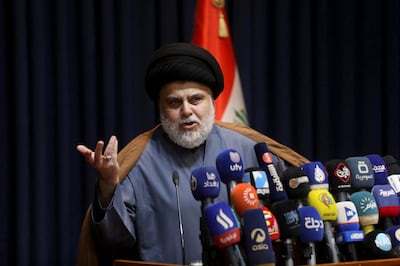
Sunday’s ruling came after some lawmakers aligned with the Co-ordination Framework requested an explanation from President Barham Salih on the caretaker government’s authority. He, in turn, sent the question to the court.
The ruling is “politically motivated as the bill has been supported by one side and rejected by another which wants to derail the process to exercise more pressure”, Hadi Jalo Marie, chairman of the Political Decision think tank in Baghdad, told The National.
“I don’t see the latest development pushing rivals to negotiating tables, but it will further deepen the rifts among them,” he added.
Shortly after Sunday’s ruling, Mr Al Sadr acknowledged that he had failed to form a new government, giving his partners and rivals 30 days to reach agreement.
“Because of the increased pressure made on me from inside and outside on the idea of forming a national majority government, I didn’t succeed at this endeavour,” Mr Al Sadr said in a statement.
He blamed independents who have resisted calls from both rival political blocs to take a side.
“We are left with one option that we should try, which is turning into a national opposition for at least 30 days,” Mr Al Sadr said.
If other parties fail to form the government, “we will have another decision that we will announce then”, he added.
On Monday, Mr Al Sadr reiterated his firm stance against forming a government with the Co-ordination Framework.
“Do you think that your acts will force us to ally with you?” Mr Al Sadr said in a pre-recorded televised speech. “No, and a thousand times no.”
He vowed “not take Iraq back to corruption, detestable consensus and Muhassasa”, referring to the quota-based system introduced after 2003 that aims to give equal representation to the country's different religious and ethnic communities.
